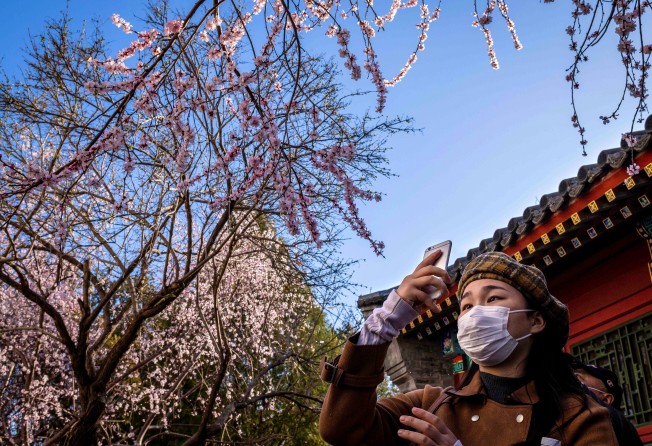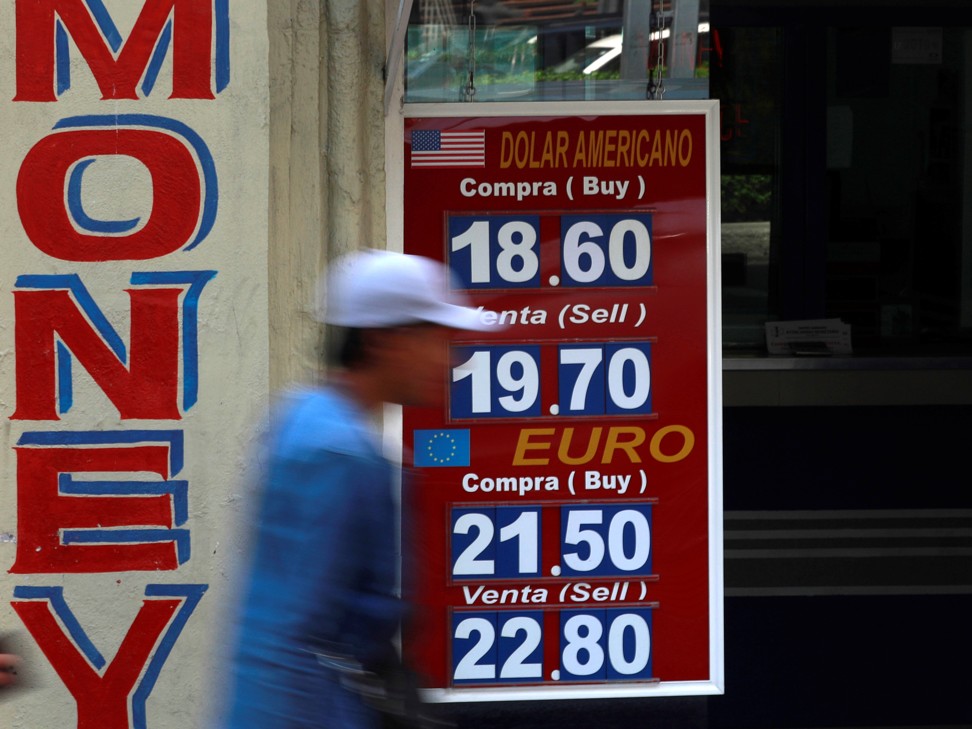As Europe’s coronavirus death rate climbs, China’s recovery from the epidemic has become a bellwether for investor sentiment
- If economic activity resumes in China without triggering renewed clusters of outbreaks, investors will conclude that aggressive containment measures can be successful and they will have clarity on the depth and duration of the crisis

In the space of just two months, the rapid outbreak of Covid-19 in Wuhan has morphed into a fully fledged global financial and economic crisis.
The speed at which the coronavirus – which was labelled a pandemic by the World Health Organisation last week – has sent markets into a tailspin is striking. As recently as February 19, the S&P 500 equity index stood at a record high. Since then, it has plunged 29 per cent.
On Monday, the index suffered its sharpest daily fall since 1987, sending the VIX Index, Wall Street’s “fear gauge”, to its highest level since the 2008 financial crisis.
Gauges of stress in the financial system are rising sharply. Companies and banks are hoarding US dollars to service their debts and keep business flowing during the crisis, causing a dollar funding squeeze. Corporate debt markets have come under severe strain – spreads on high-yield energy bonds have surged to a record high – while Italy’s benchmark borrowing costs have more than doubled over the past fortnight.
The turmoil stems partly from the near certainty of a global recession in the first half of this year, as the world’s leading economies face severe and widespread disruptions caused by lockdowns and social distancing measures aimed at containing the spread of the virus.
The crisis has spurred policymakers into action. The US Federal Reserve has gone “all in” in an effort to ensure that the all-important plumbing of the financial system does not break down.
Just as importantly, governments, led by US President Donald Trump’s administration, are adopting a “whatever it takes” approach by pledging to spend trillions of dollars to support business activity and shield household incomes.
Markets have welcomed the collective and aggressive response. Yet, while policymakers have begun to address the economic fallout from Covid-19 in a more credible manner, asset prices continue to suffer steep declines.
On Tuesday, the Philippines became the first country to close its entire capital markets. Other countries may follow suit if sentiment does not improve quickly.
However, shutting markets, particularly the most important ones in America and Europe, could add to stresses in the financial system, and only compound investor anxiety.
Massive stimulus, moreover, will do little to address the underlying fears of investors, businesses and consumers. Emergency loan guarantees to firms and direct cash payments to the public are not going to encourage people to travel and help reintegrate supply chains .
Health policy, as opposed to monetary and fiscal policy, has become the most important determinant of market sentiment.
While investors are nervously eyeing gauges of financial stress, they are paying more attention to the latest data on confirmed Covid-19 cases.
The most important indicator on trading floors right now is not the level of the VIX Index or the price of a barrel of oil, it is a data dashboard maintained by Johns Hopkins University which tracks the number of coronavirus cases and deaths worldwide.
In a sign of the degree to which Europe has supplanted China as the epicentre of the disease, death tolls are now growing at a faster pace in Italy and Spain than they did in China at the same stage of the outbreak. In Britain, around 700 new cases were reported on March 18, forcing the government to prepare for the closure of London.
This is why what happens in China – which has implemented the most draconian quarantine measures and where the virus-induced downturn is having the biggest impact on the global economy – in the coming days and weeks is likely to prove crucial to sentiment.
If economic activity resumes without triggering renewed clusters of outbreaks, this would show that aggressive containment measures can be successful, providing more clarity on the depth and duration of the Covid-19 crisis.
As Morning Porridge, a widely read market newsletter produced by Bill Blain, noted on Tuesday: “We reckon the buy signal will be a slowing infection/transmission rate. That is when the market will anticipate recovery and we’ll see prices start to strengthen.”
The key question, however, is the length of time it takes for the global infection rate, particularly in Europe and the US, to peak.

Markets, which are already showing signs of breaking down, cannot afford to suffer further dislocations lest a 2008-style credit crunch takes hold.
Financial conditions are tightening at a rapid and disorderly pace, evidenced by the surge in the US dollar (a major threat to emerging markets) and, more worryingly, a sharp sell-off in government bonds as investors rush to sell even the safest of assets amid a dearth of liquidity.
The panic will force central banks to adopt more radical measures to help stabilise markets, such as purchases of corporate bonds, which have come under severe pressure.
Yet, the policy response that will matter most in helping restore investor confidence will be public health measures aimed at lowering infection rates and stemming the spread of the virus. All eyes will be on the Johns Hopkins University dashboard for some time yet.
Nicholas Spiro is a partner at Lauressa Advisory
Purchase the China AI Report 2020 brought to you by SCMP Research and enjoy a 20% discount (original price US$400). This 60-page all new intelligence report gives you first-hand insights and analysis into the latest industry developments and intelligence about China AI. Get exclusive access to our webinars for continuous learning, and interact with China AI executives in live Q&A. Offer valid until 31 March 2020.